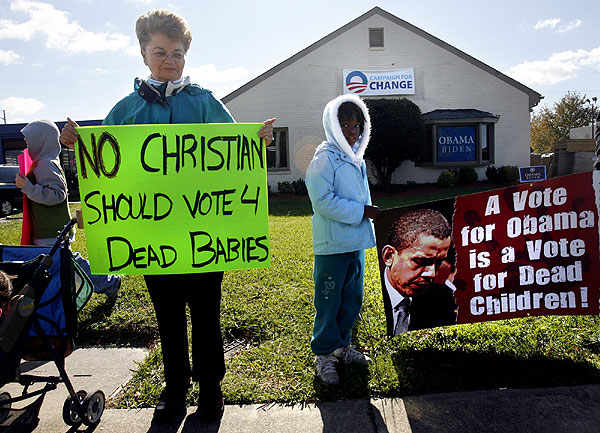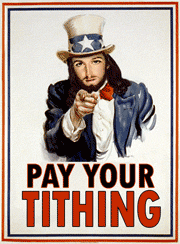Zounds.
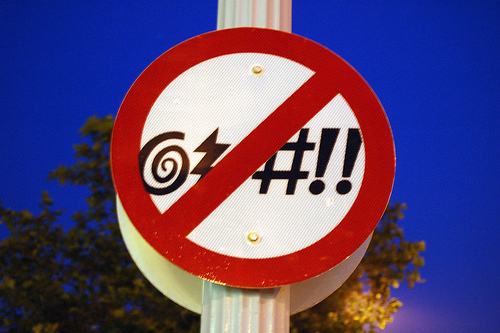 |
| No swirl-lightning-number-exclamation! |
Some stuff has happened recently which has forced me to examine the topic of swearing. It's something I've actually had to give quite a bit of thought to, both in deciding the tone of this site (my mom now reads it…) and in examining how to interact with the lovely people I encounter in my life. Here's the thing: I like swearing. I think "bad words" add to the richness of our linguistic landscape. My life is made better through profanity.
Actually, that's testably and verifiably true according to several studies (most recently this one, but this is also notable). In addition to pain relief and stress abatement, swearing, used properly, can create a sense of camaraderie, can be an instant humor boost (again, I said used properly– used badly it can easily kill humor), and can be a very effective zealot repellant. Beyond that, however, it's just nice to have certain words which are strong enough to instantly evoke powerful reaction. Sometimes you just want to elicit a specific response or make your audience understand the gravity of what you're discussing without having to get too verbose. I don't care who you are, saying "I cannot overstate the enormity of the moose we saw… it was gargantuan" will never match "We saw this HUGE FUCKING MOOSE!"
This does not mean that I'm ok with any words used any time. I am not a fan of abusive language. That stance is, however, much less about the language, and more about the fact that I'm simply not a fan of abuse. Thus, I pretty much never use epithets of race, gender, sexuality, or physical or mental disability. Well, actually that's not true. I will use certain words of abuse as terms of endearment when I am totally confident that they won't be misinterpreted. But that's a dangerous game and I've seen many instances where someone felt "in" enough to use an epithet without offense, only to find that they definitely weren't (why are so many white guys so desperate to be able to be able to use the N word? It's pathetic, really).
I also believe in respect and propriety. Not to the extent that many people wish I believed in them, but I do believe in them. I will not, for the most part, curse in somebody's church (well, not loudly enough to be heard, anyway) or in front of people who I believe do not have a modern understanding of these words (old folks). I use swearing to add emphasis and color- I rarely wish to offend. By the same token, however, I will not hold back from swearing just because somebody has decided that they're going to take offense. If the context is not offensive, objecting to a little mildly colorful language is arbitrary enough that I feel no need to show deference.
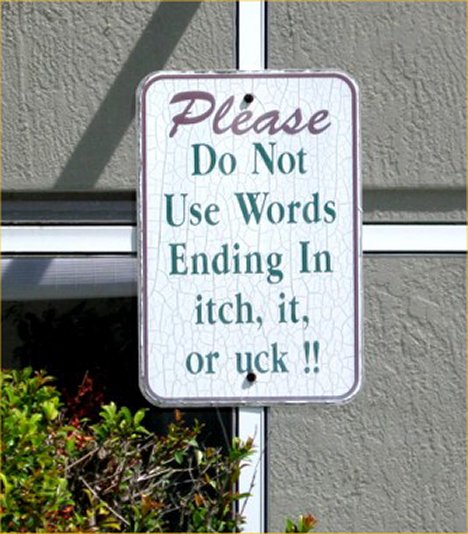 |
| But my duck likes to sit in a ditch… |
All of my stances on profanity are colored by the fact that I live in Mormonland. Though Salt Lake City proper is quite liberal and predominantly non-Mormon (meaning the Mormons only account for, say 40% of the population as opposed to 70-90% in the rest of the State), you still can't drop an f-bomb without some poor Mo taking some shrapnel. The Mormons. . . y'know what? I'm going to stop myself here and rein in the sweeping generalization I was about to make (meaning I will still make a sweeping generalization- I just won't sweep quite as far). I need to differentiate between Utah Mormons and non-Utah Mormons. Utah Mormons (or Utards as they are sometimes known around here) are a unique breed. They have all the quirks of Mormonism, but are so insulated from the rest of the world that they are completely unaware of the fact that they are considered a weird fringe religion (they were shocked when the Country was worried about a Mo candidate for president- they thought everybody would love the idea).
[Author's note: I see the irony of me using the epithet "Utard" just two paragraphs after declaring my opposition to abuse. What can I say- I'm a complicated person]
[Author's other note: Or maybe I'm just an asshole]
Anyhoo, the Utards are extremely sensitive to the swears. They seem to take it personally- like you're attacking their beliefs to say these words in their presence. Case in point: my girlfriend's sister. She's a lovely, intelligent, artistic woman, but she so hates to hear the word fuck that she's weeded herself out of seeing some amazing films just to avoid that word. And she loves film. This is the stupid false dilemma of the profanity-averse.
Here's the deal (and I see this as emblematic of a much larger issue): like many religious people, the Utards have trouble seeing the difference between something that is culturally less acceptable, and something that is religiously forbidden. Everything is black and white. You're either doing the right thing or you're sinning. There is no room for things that some don't like, but that are still fine (see Utah liquor laws).
The problem with that is that if all actions are simply put into category a or category b, it makes everything in each category the same. Thus, when you swear, you are committing a sin, and sin is sin. To be fair, folks believe in a hierarchy of sin, so it's not like anyone's equating it to, say, beating up an old lady or something. But the fact that anyone thinks that swearing– English swearing, that is– is a sin is fucking absurd.
"English swearing?" you may ask… "Why would you single out English swearing as being less likely to be sinful?"
 |
| Anyone know what "jeffin" is? |
I'm so glad you asked! You see, English swearing isn't even swearing, in the true sense of the word. "Swearing" used to refer to taking an oath, and the reason it was deemed offensive is that people would swear in the names of holy people. That, at least, I can understand people getting worked up about as a sin. Someone in Shakespeare's time would say "Now, by Saint Ann, I'll kill you for that!" or "Set down that wench or I'll flog you, by Jove." (Jove was a name they used for god). That was some strong language.
[Clarification: As someone calling themself "Marimba Ani" in the comments points out, Jove was actually a reference to the Greek god Jupiter. However, the reason Elizabethans would use Jove was because it was illegal to invoke the christian god in print or on stage, so Jove became a useful stand-in. Why the hell would Elizabethans care about Jupiter?]
In modern English, very few of our "swear" words are remotely religious in nature. As a matter of fact, they're almost entirely "nature" in nature. Our naughty words are about bodily functions, not divine personages. Pooping and sex and whatnot. Its not even profanity in the true sense of the word. The fact is that religious people should be way more offended by phrases like "by Jove" or "by George" (referring to Saint George) or "Jeeze" (short for Jesus) or any of a number of quaint-sounding anachronisms than by shit or fuck. Even seemingly innocuous words like gee, heck, gosh and darn all have holy derivations.
As a matter of fact, the only commonly used phrases I can understand religious folks really having trouble with are "God damn" and "Jesus Christ" used as exclamatory utterances. And I admit that it could be argued that there's something slightly off about an atheist like me appropriating religious phrasing to add salt to my dialogue. However, for better or worse, these phrases have fallen into the domain of the culture at large. Nobody actually thinks I'm talking about somebody's savior when I shout "Jesus Christ" after hitting my thumb with a hammer. We all own these phrases now, and as long as they are useful, we'll keep on using them.
The truth is that the whole reason I'm writing this screed is that I'm annoyed. I'm annoyed when someone objects to something and they don't really know why. I'm annoyed when social norms are based on bullshit religion, especially when it flies in the face of reason. But most of all I'm annoyed because I really like my girlfriend's family, and I want to just hang out with them without being on my guard all the time. I want to be able to watch movies with them without becoming hyper-aware that they're wincing every time somebody says "shit". I just want them all to FUCKING RELAX!
FUCK!

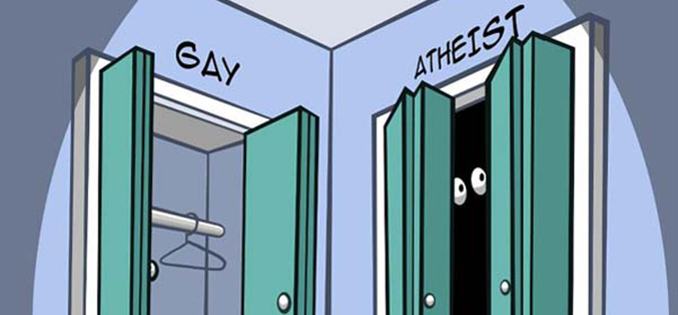



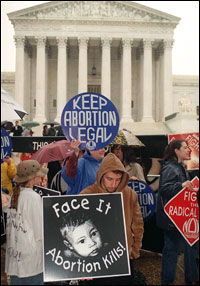 So I was reading up on the social/political positions of various churches this morning and was forced to think about my own position on several issues. One issue that they all seem to be totally hung up on is abortion. I tell you they’re positively obsessed with it. I guess you probably knew that…
So I was reading up on the social/political positions of various churches this morning and was forced to think about my own position on several issues. One issue that they all seem to be totally hung up on is abortion. I tell you they’re positively obsessed with it. I guess you probably knew that…